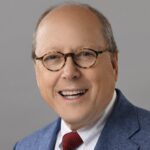A colleague in our practice has spent roughly half his career in academic medicine and the other half in private practice. He noted to me that one is not an expert on medical subject matter because they are asked to write a book chapter; rather, one becomes an expert through the process of writing the chapter. You have to do the work to reap the benefits in terms of knowledge.
TR: How do you manage to stay up to date on the medical and scientific literature and cutting-edge research in rheumatology?
Dr. Baraf: I’ve been involved in clinical trials since the start of my clinical practice. This has helped significantly in allowing me to remain abreast of the latest developments in the field, especially with respect to topics that relate to these trials. One cannot know everything about everything, but a clinician can know a little about a lot of things and can also, in some cases, know a lot about a specific set of topics.
I have been very involved in the study of gout, and this has allowed me to remain up to date on the topic and even to lecture to colleagues.
I feel it is very important to be involved in the exchange of ideas through lectures, conferences and other scholarly venues. I try to share what I know with others who can use this information the most, such as medical students and trainees, and my fellow rheumatologists, who are doing outstanding work treating patients.
I must also say that the landscape of medical research updates has changed dramatically over the course of my career. It used to be the case that rheumatologists would learn about most updates from one or two main conferences each year, but now there are new data being received in email alerts and through online publications every week. I am a multi-tasker and enjoy handling many things at once, and I believe this trait has allowed me to stay current when it comes to the medical literature.
TR: How do you approach the concept of uncertainty when entertaining a diagnosis for a patient?
Dr. Baraf: Uncertainty comes with the territory in rheumatology. I had a professor of pathology in medical school who made a point of catching students who were bluffing, fabricating answers and hand-waving in response to his questions. He would scold the student and say, ‘You don’t know the answer to the question, and you should admit as much.’

